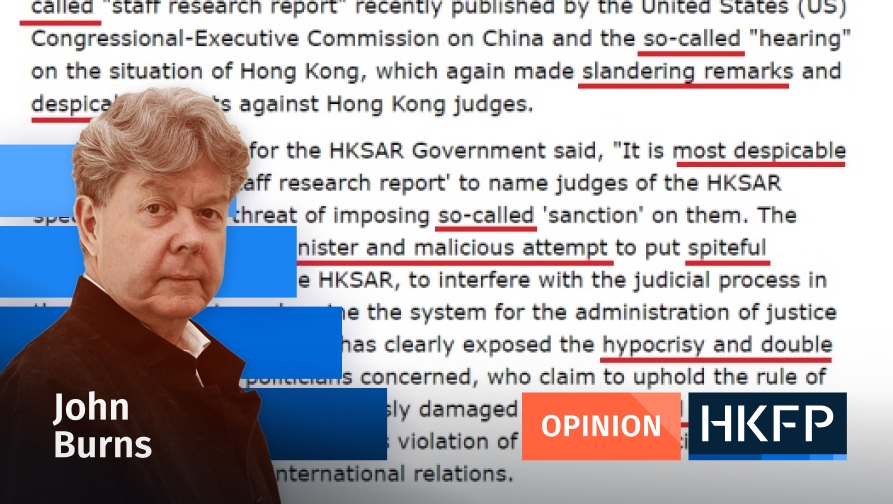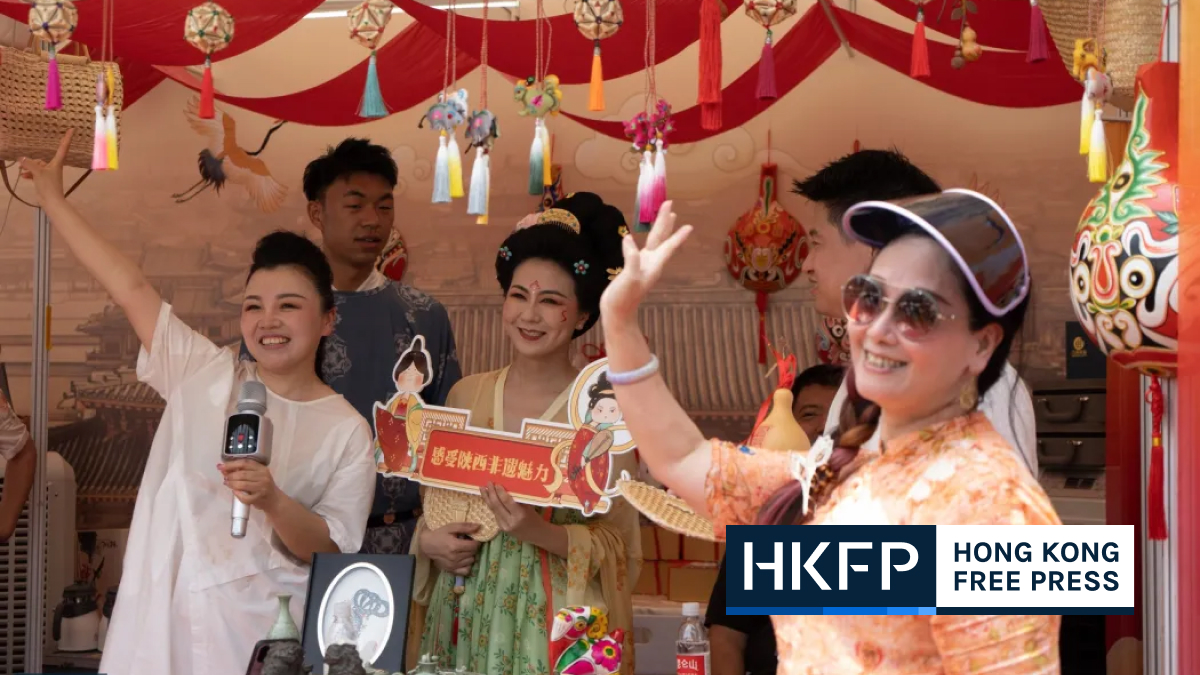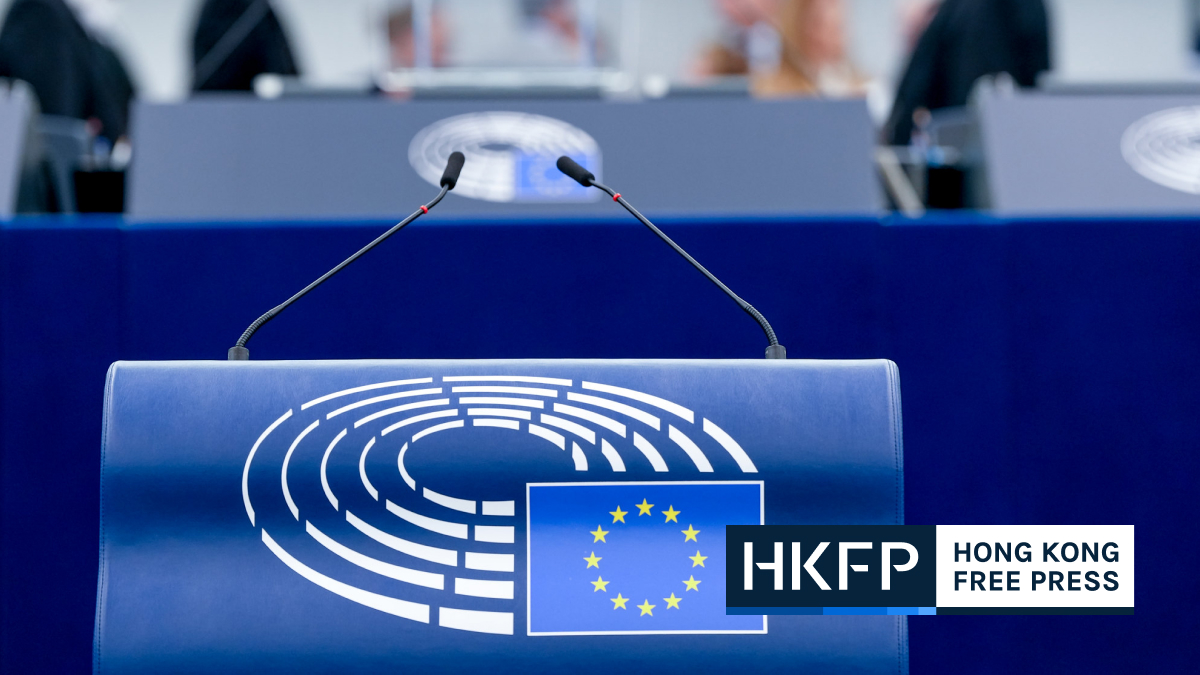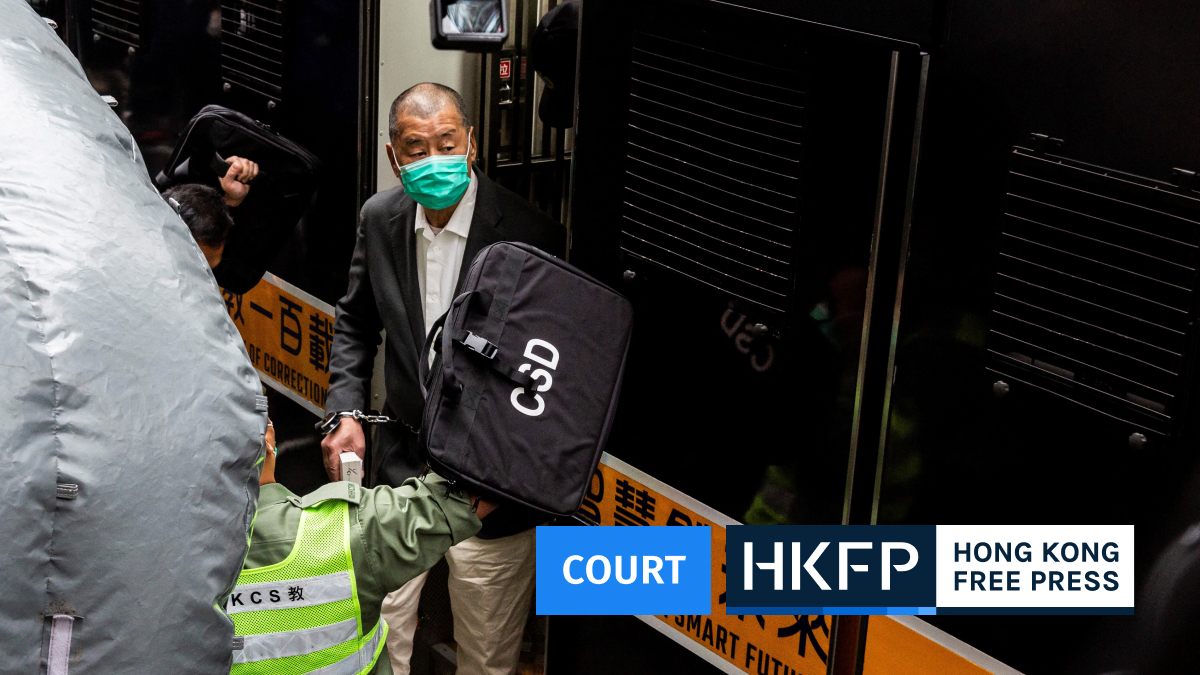Beijing will be invited to determine whether overseas counsels are allowed to take part in national security trials in Hong Kong, Chief Executive John Lee said on Monday.
The announcement came hours after a ruling from the city’s top court upheld an earlier decision to allow a UK barrister to represent media tycoon Jimmy Lai in a high-profile national security trial that is set to open on Thursday.

Addressing reporters on Monday evening, Lee said he had received a letter from Beijing on Sunday asking him to report on the national security situation in the city. “We have a constitutional right to safeguard national security,” Lee said, adding “our stance is unswerving very clear.”
As part of that report, Lee said he would invite Beijing to interpret the legislative intent of the national security law to rule on whether overseas lawyers could represent clients in trials relating to offences under the security legislation.
“Hong Kong residents have the right to choose their own lawyers. According to previous cases, the right of defendants to choose their legal representation refers to choosing from lawyers who are fully qualified in Hong Kong, not overseas lawyers who do not have those qualifications,” Lee said.
“Therefore, even if defendants accused of endangering national security cannot hire overseas counsels as their legal representatives, it still fits the requirement of respecting and protecting defendants’ freedom and rights as prescribed in Article 4 and 5 of the national security law.”
Lee said on Monday that the proposal would suggest the standing committee to issue an interpretation in acocrdance with Article 65 of the security legislation.
Article 65 of the national security law stipulates that the NPCSC has the power of interpretation of the legislation.

The chief executive said he “respects” the court’s ruling, but as the matter would have far-reaching implications, there was a need for clarification.
According to Lee, there is no established mechanism to eliminate the possibility of conflicts of interest arising from the national interests of overseas counsels, or the possibility that they could be pressured by foreign governments or organisations.
There was also no way of ensuring that overseas lawyers would adhere to confidentiality requirements concerning state, business, and personal secrets, Lee said.
Foreign judges sitting in Hong Kong courts were “a completely different matter,” Lee said, as they were vetted and that there was a designated mechanism for judges presiding over national security law cases, and hence the matter should not be confused with the issue of overseas counsels.
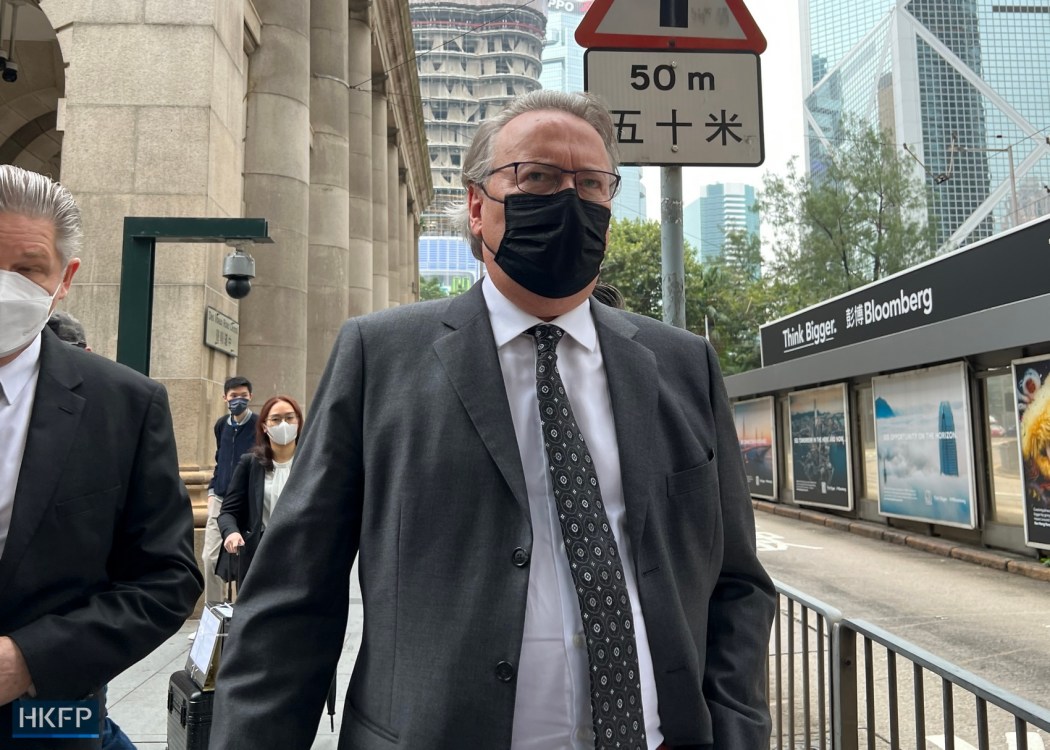
Lee said that he would submit the report “very soon” and that he expected the central government would respond “as soon as possible.”
“I trust that this matter will be addressed as soon as possible,” Lee said.
As for any impact the proposed interpretation may have on Lai’s trial, Lee said it “would be appropriate for the Department of Justice to seek an adjournment.”
Instances of interpretation
Legislative interpretations are not unique to the sweeping security law.
According to Article 158 of the Basic Law, the Standing Committee of the National People’s Congress has the power of interpretation of the city’s mini-constitution.
Hong Kong has seen five instances of legislative interpretation since the handover. The most recent, in 2016, effectively banned six pro-democracy lawmakers-elect from the Legislative Council.
Lai, who founded the pro-democracy tabloid Apple Daily, stands accused of four charges: two counts of conspiracy to collude with foreign forces and one count of collusion with foreign forces under the national security law, and one count of conspiracy over allegedly seditious materials under the colonial-era sedition law.
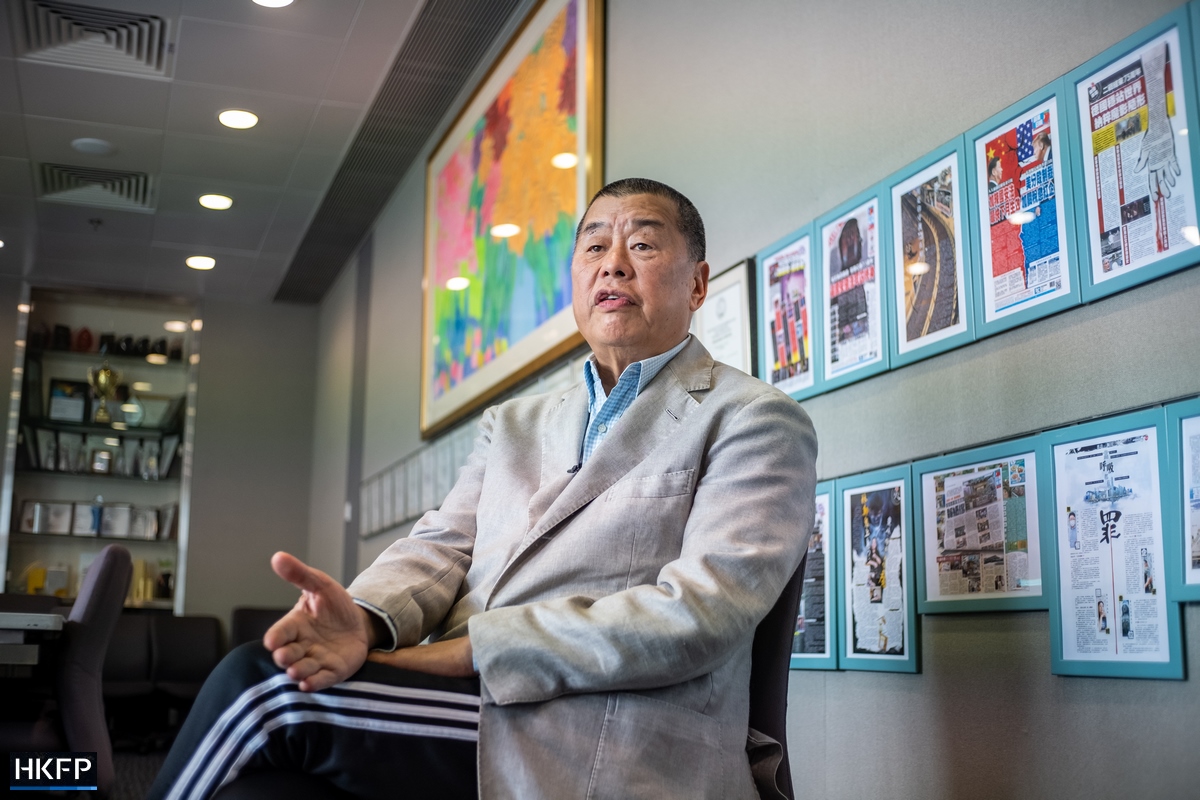
The High Court in October approved the admission of King’s Counsel Timothy Owen, allowing him to represent Lai in the national security trial.
The secretary for justice lodged four attempts to block Owen’s admission, with the latest rejected by the Court of Final Appeal on Monday. A panel of three judges, including Chief Justice Andrew Cheung, ruled that “no appropriate basis has been made out” in the justice secretary’s application.
Pro-Beijing figures in the city, including Hong Kong’s sole delegate to the standing committee Tam Yiu-chung, suggested prior to that ruling that Beijing would interfere if the decision to admit Owen was upheld.
Support HKFP | Policies & Ethics | Error/typo? | Contact Us | Newsletter | Transparency & Annual Report | Apps
Help safeguard press freedom & keep HKFP free for all readers by supporting our team





















